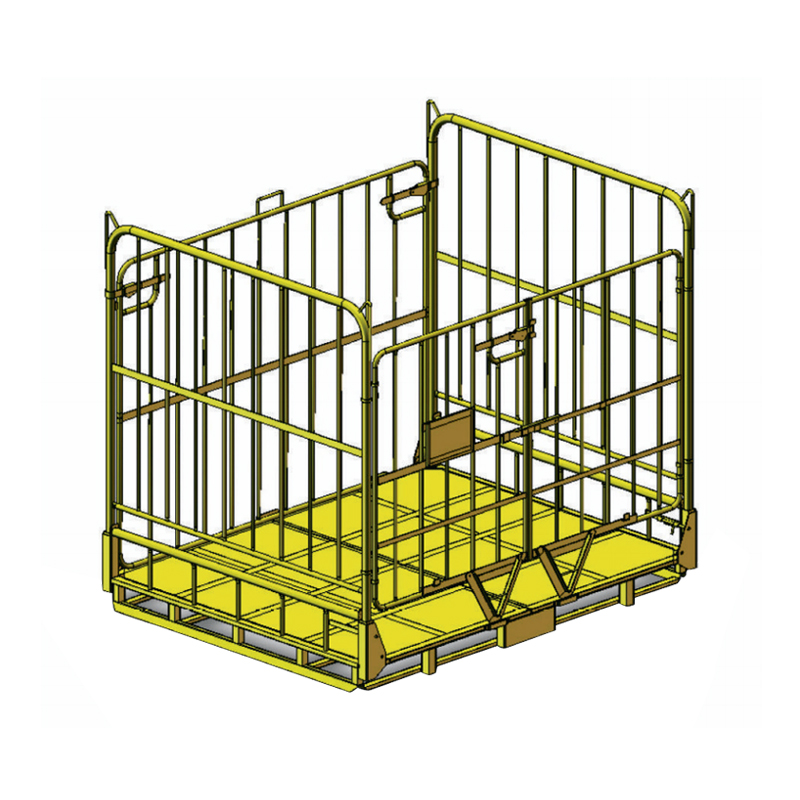The performance of wire mesh containers in extreme heat or chemical exposure depends on several factors, including the material used, design features, and specific environmental conditions. Here’s a detailed look at how different wire mesh containers respond:
Material Composition:Steel: Galvanized or stainless steel wire mesh containers generally perform well in high-temperature environments.Galvanized steel has added corrosion resistance, while stainless steel offers excellent resistance to oxidation and rust in harsh conditions.Coatings: Some wire mesh containers may have protective coatings (like powder coating) that can withstand certain chemicals and temperatures, but these coatings may degrade under extreme conditions.Aluminum: Aluminum containers are lightweight and resistant to corrosion, but they may not withstand very high temperatures as well as steel.
Heat Resistance:High-Temperature Applications: Wire mesh containers designed for high-temperature applications are often made from materials specifically rated for heat resistance, such as high-carbon steel or heat-treated alloys.Thermal Conductivity: Wire mesh allows for good air circulation, which can help dissipate heat. However, if exposed to direct flames or extremely high temperatures for prolonged periods, even metal containers can fail.
Chemical Resistance:Corrosive Substances: Stainless steel is highly resistant to many acids and bases, making it suitable for chemical handling. However, certain strong acids can still cause corrosion over time.Galvanization: While galvanized steel offers good resistance to many chemicals, prolonged exposure to harsh chemicals (like hydrochloric acid) can lead to corrosion of the zinc coating.Chemical Compatibility: It’s crucial to evaluate the specific chemicals being stored or transported in wire mesh containers, as some materials may not be suitable for all chemicals.

Design Features:Ventilation: The open design of wire mesh containers allows for ventilation, which can prevent heat buildup and help dissipate chemical fumes. However, this also means that contents might be more exposed to environmental factors.Reinforcement: Containers that are reinforced or designed specifically for industrial applications may better withstand the stresses of extreme conditions.
Environmental Factors:Temperature Fluctuations: Rapid temperature changes can affect the structural integrity of wire mesh containers, particularly those with coatings that may not expand and contract evenly with the metal.Humidity and Moisture: In environments with high humidity or exposure to moisture, corrosion can be a significant concern. Choosing the right material and maintaining a dry environment is essential.
The performance of wire mesh containers in extreme heat or exposure to chemicals is largely determined by their material composition, design features, and specific environmental conditions. Stainless steel containers are typically the best choice for high temperatures and corrosive environments, while galvanized steel may suffice for less demanding applications. Always consider the specific requirements and conditions of your application when selecting wire mesh containers.
